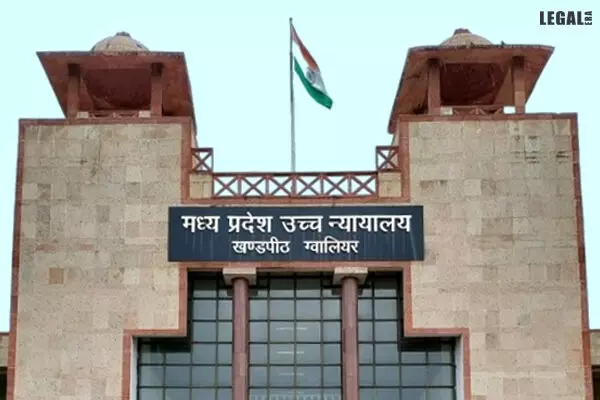- Home
- News
- Articles+
- Aerospace
- Agriculture
- Alternate Dispute Resolution
- Banking and Finance
- Bankruptcy
- Book Review
- Bribery & Corruption
- Commercial Litigation
- Competition Law
- Conference Reports
- Consumer Products
- Contract
- Corporate Governance
- Corporate Law
- Covid-19
- Cryptocurrency
- Cybersecurity
- Data Protection
- Defence
- Digital Economy
- E-commerce
- Employment Law
- Energy and Natural Resources
- Entertainment and Sports Law
- Environmental Law
- FDI
- Food and Beverage
- Health Care
- IBC Diaries
- Insurance Law
- Intellectual Property
- International Law
- Know the Law
- Labour Laws
- Litigation
- Litigation Funding
- Manufacturing
- Mergers & Acquisitions
- NFTs
- Privacy
- Private Equity
- Project Finance
- Real Estate
- Risk and Compliance
- Technology Media and Telecom
- Tributes
- Zoom In
- Take On Board
- In Focus
- Law & Policy and Regulation
- IP & Tech Era
- Viewpoint
- Arbitration & Mediation
- Tax
- Student Corner
- AI
- ESG
- Gaming
- Inclusion & Diversity
- Law Firms
- In-House
- Rankings
- E-Magazine
- Legal Era TV
- Events
- News
- Articles
- Aerospace
- Agriculture
- Alternate Dispute Resolution
- Banking and Finance
- Bankruptcy
- Book Review
- Bribery & Corruption
- Commercial Litigation
- Competition Law
- Conference Reports
- Consumer Products
- Contract
- Corporate Governance
- Corporate Law
- Covid-19
- Cryptocurrency
- Cybersecurity
- Data Protection
- Defence
- Digital Economy
- E-commerce
- Employment Law
- Energy and Natural Resources
- Entertainment and Sports Law
- Environmental Law
- FDI
- Food and Beverage
- Health Care
- IBC Diaries
- Insurance Law
- Intellectual Property
- International Law
- Know the Law
- Labour Laws
- Litigation
- Litigation Funding
- Manufacturing
- Mergers & Acquisitions
- NFTs
- Privacy
- Private Equity
- Project Finance
- Real Estate
- Risk and Compliance
- Technology Media and Telecom
- Tributes
- Zoom In
- Take On Board
- In Focus
- Law & Policy and Regulation
- IP & Tech Era
- Viewpoint
- Arbitration & Mediation
- Tax
- Student Corner
- AI
- ESG
- Gaming
- Inclusion & Diversity
- Law Firms
- In-House
- Rankings
- E-Magazine
- Legal Era TV
- Events
Employment Contract Not Enforceable In Absence of Statutory Governance Element: Madhya Pradesh High Court

Employment Contract Not Enforceable In Absence of Statutory Governance Element: Madhya Pradesh High Court
Cites the judgment of the Supreme Court in a similar case
The Madhya Pradesh High Court has held that when contracts of employment are governed by the terms of the contract (without an element of statutory governance), such deals (determining the relationship between the master and the servant), are not specifically enforceable.
In the Purushottam Suryabanshi vs. The State of Madhya Pradesh and Ors case, the single-judge bench of Justice Maninder S. Bhatti cited the decision of the Supreme Court in the State Bank of India Vs. S.M. Goyal case.
It observed that the apex court had held, “When the relationship of the master and the servant was purely contractual, the contract of service was not enforceable. The employment was purely governed by the contract. If there was no element of statutory governance, the contract of personal service would not be enforceable.”
The top court had iterated that even if the termination of the contract of employment (by dismissal or otherwise) was found to be illegal or in breach, the remedy of the employee was only to seek damages and not specific performance. In such instances, the court would neither declare such termination to be a nullity nor that the contract subsisted, or grant the consequential relief of reinstatement, with very few exceptions.
In 2015, the petitioner was appointed as samooh prerak in Rewa, Madhya Pradesh, for one year. On 07 March 2020, he was transferred to Bhind.
However, the petitioner/employee challenged the transfer order in the court and the order was stayed until 30 September 2020. Following this, the representation against the order was decided by the authorities as per the direction of the court, and it was rejected.
Once again, the employee challenged the decision of the authorities before the court via another writ petition, which was dismissed on 27 February 2021. Later, when the petitioner tried to rejoin as samooh prerak as per the transfer order, the respondents refused to allow it.
Aggrieved by the act of the authorities, the employee filed another writ petition before the court, which directed the respondents to consider his reinstatement if there was no other legal impediment.
On 30 November 2021, the respondents passed another order stating that the contractual agreement with the employee had come to an end as per clause 17 of the contract since the petitioner remained unauthorizedly absent for months.
Thus, while challenging the order, the petitioner sought a direction to quash the order and requested to be reinstated in service with arrears of salary and continuity in service.
The single-judge bench noted that the absence of the petitioner during the transfer order and the court’s interim stay were not accounted for properly. Also, his absence for nearly three months was not sufficiently explained by the petitioner.
Thus, the judge held that the decision of the apex court had already established that the contractual appointee had very limited rights to ask for continuation of service when the relationship between the master and the servant was purely contractual and lacked any statutory governance.
The court added that the petitioner failed to demonstrate reasons for his prolonged absence from the workplace, contrary to Clause 17 of the contract that governed the employer-employee relationship. The respondents did not commit any error in putting an end to the stint of the petitioner as ‘samooh prerak’.



